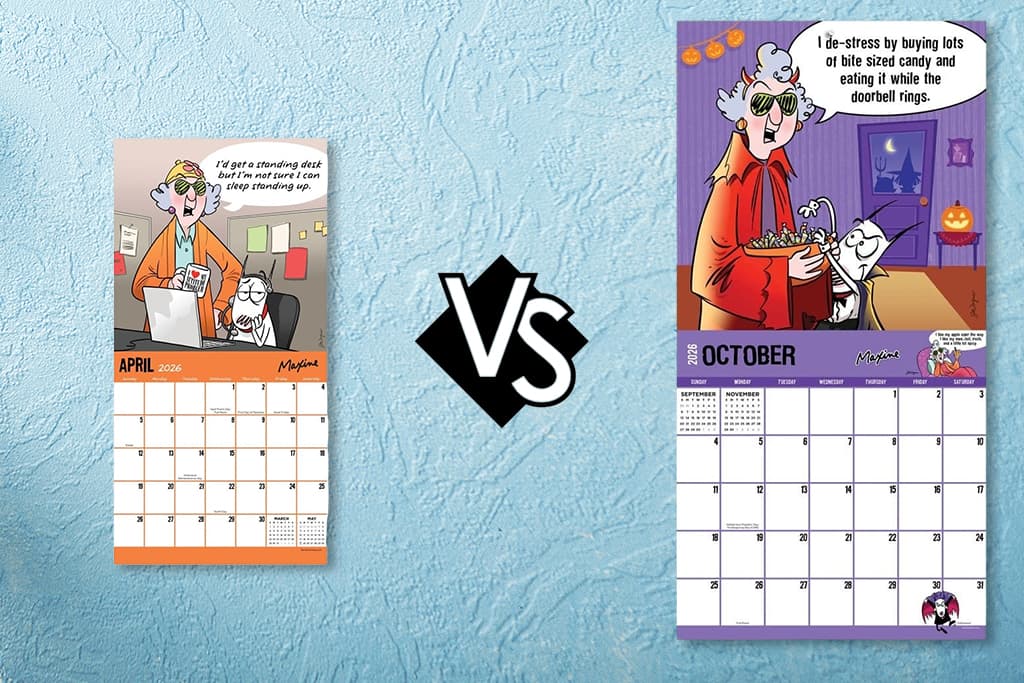Size is not everything. Standard 12 x 24 wall calendars get the attention, but mini wall calendars earn their place when space is tight or privacy matters. The question is not which is better. It is when smaller beats bigger for the job.
The Mini Advantage
Space efficient
Minis shine where wall space is limited. Typical open size is about 7 x 14. They deliver clear month views without taking over a room. Perfect for apartments, dorms, and small offices.
Personal and private
Great in bedrooms, home offices, or workstations where the calendar serves one person. You get quick reference without broadcasting your schedule to the room.
Focused entries
Less space means concise notes. That can improve clarity. Keep details in a planner and use the mini for the essentials.
Where Minis Work Best
Dorms and small apartments
Use a mini for daily awareness and save walls for art or storage. Easy to move when layouts change.
Cubicles and shared offices
Fits inside tight panels. Keeps personal dates visible without creating clutter or taking desk space.
Secondary locations
Pair a mini with a family master calendar. Bedrooms, craft rooms, garages, and study nooks all benefit from quick local reference.
When Full Size Is Non negotiable
Family command centers
Multiple people and moving parts need a large grid. A 12 x 24 or 13.4 x 24 handles color coding, multiple entries, and scanning from across the room.
Complex schedules
Detailed appointments, time blocks, and project phases need writing room. For heavy use, full size stays readable and useful.
High traffic spaces
Kitchens and living rooms need visibility from different angles. Bigger formats are easier to read at a glance.
The Hybrid Approach
One master plus targeted minis
Use a full size calendar for shared plans, then deploy minis where a person needs quick local context. No duplication. Elevate only what affects others.
Activity specific minis
Dedicated minis work well for sports, fitness, school, or hobbies. They keep the master calendar clean while giving detail where it belongs.
Practical Checks
Writing space
Match size to handwriting and note style. If you write large or add many details, go full size. If you only need reminders, a mini is fine.
Viewing distance
Minis belong within about 3 feet. If you need to read from across a room, choose a larger grid.
Visual impact
Some rooms benefit from a calendar that anchors the wall. Others need a tool that blends in. Choose based on the role you want it to play.
Make the Right Choice
Decide based on space, users, and the kind of notes you write. If unsure, start with a mini. If you run out of room, upgrade to full size. The best calendar is the one you update often and can read without squinting.

